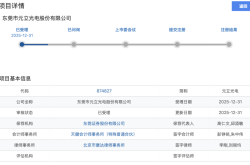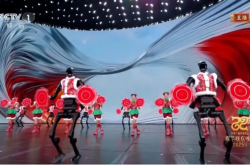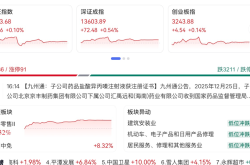Tencent Says "No" to the Hardcore Alliance
![]() 06/27 2024
06/27 2024
![]() 668
668
Author | Wen Yehao
Editor | Wu Xianzhi
Tencent, long accustomed to being labeled as the "evil dragon," has experienced a reversal of reputation in the player community.
Recently, Tencent's mobile game "Dungeon Fighter Online: Origin" ended its cooperation with some Android channels. As soon as this news broke, players who had already "broken off" with Tencent flocked to support Tencent, claiming that Tencent had finally done something good.
For Tencent, the consecutive failures of "Valorant" and "Yuanmeng Zhixing" in 2023 seemed to constantly add salt to the wounds of the empire, prying open cracks. "Dungeon Fighter Online: Origin," as a beacon of hope, won a major comeback despite facing extremely poor reputation, with revenue soaring. Naturally, Tencent did not want to let the profits flow to the hardcore alliance's territory.
The so-called Hardcore Alliance refers to domestic mobile phone manufacturers such as Huawei, OPPO, vivo, etc., who have formed a channel wall by banding together. The alliance has set a "pact" with game developers to split the revenue 50-50, and this part of the revenue is also counted as internet service revenue, allowing various hardware manufacturers to extend their fingers into the internet wave.
Unlike the "Apple tax," which is purely a commission, with all costs borne by the developer and almost no additional labor required, the operating model of the hardcore alliance and mobile phone manufacturers outside the alliance is more like a cinema. When a movie is completed, the film producer usually only needs to hand over the film to the cinema, and the remaining tasks such as projection equipment, audience service, and facility maintenance are completely managed by the cinema.
Similarly, in Android channels, most game developers will hand over the game package to the channel, and then the mobile phone manufacturers will build and maintain the servers themselves, known as channel servers.
Although Tencent games have never had the concept of channel servers, the war sparked by top players has still revealed the hidden channel story behind the hardcore alliance. And at a time when Tencent has reconciled with TikTok and the pure-blood HarmonyOS is about to launch, Tencent suddenly attacked the hardcore alliance, seemingly with ulterior motives.
Hidden Channel Servers, a Tripartite Game of Deception Among Three Parties
Surrounding channel servers, mobile phone manufacturers, game developers, and player groups have been engaged in a tripartite game of deception among three parties.
In the past, relying on the demographic dividend, mobile phone manufacturers who had a large number of potential users naturally had a strong voice in the Chinese gaming industry. And before game licenses were introduced, manufacturers could extract profits from industry growth without having to put much effort into content. Therefore, whoever could squeeze into the channels could become the pig at the forefront of the trend.

Under this background, apart from a few large game companies, many game manufacturers were willing to sell their souls and even enter app stores with more stringent revenue-sharing ratios, competing to gain access. And the channel servers themselves did, to a certain extent, alleviate the cost anxiety of small game teams.
Therefore, even though the 50-50 revenue-sharing model initially made mobile phone manufacturers appear like "villains," considering their role beyond content distribution, everything seemed more reasonable.
The contradiction lies in the fact that facing "easy targets," Android channels were not satisfied with the overt revenue-sharing agreement but instead resorted to underhand tricks to maximize profits.
Senior player Dingdang told Photon Planet that if a game is downloaded from the built-in app store of a domestic Android phone, although it is a channel server, the store will not provide even a hint of this.
Even if players go to the game's official website to download through a browser, they may either be prompted with risk warnings such as virus detection attempts to stop them or be presented with different options such as "vivo install/continue install" during installation, with "continue install" grayed out for a few seconds, doing their utmost to "drag" players into the channel server.
Huang Yimeng, CEO of XD.com and founder of TapTap, has also publicly stated that not only are domestic Android channels split half of the revenue, but their official website packages are also secretly replaced with channel packages that require revenue sharing during installation. It's better to simply remove them and only use the official website.
Apart from the "inducement" in the download and installation process, there are also "temptations" at the operational level.
An industry insider told Photon Planet that channel servers offer players considerable "privileges." On the one hand, most channel servers have recharge优惠政策, and for some heavy-spending SLG games, under the auspices of activities like "recharge 100 and get 200," channel server recharges can even be as low as 3-5% off. And since there are fewer channel server players compared to official servers, players can also receive higher ranking rewards.
On the other hand, compared to official servers, channel servers generally have lower restrictions on minors. While some official game servers require facial recognition, channel servers usually only require ID verification, with more "operability."
Take NetEase's "Danzai Party" as an example. The previous uproar about its minor protection was actually a vivid case of game developers taking the blame for channel servers.
In the confrontation between channel servers and official servers, veteran players like Dingdang have long learned to jump back and forth between different game types. For example, they choose channel servers when playing games with stronger single-player attributes; for games that require player cooperation and community demand, they choose official servers with a larger player base. But most channel server players are still "kidnapped" unknowingly.
Therefore, whenever a game developer "cuts ties" with Android channels, players usually applaud, even if it's Tencent, the "evil dragon."
As the logic of the gaming industry diverges, facing Android channels that openly or covertly "steal" players, game developers are gradually developing a desire to raise their right arm and revolt.
The Hardcore Alliance, Lowering Its Head
In fact, Tencent was not the first to fire the first shot at Android channels. Game manufacturers such as NetEase, miHoYo, Lilith Games, XD.com, and Yostar have already attempted to escape from channels.
One of the most representative examples is miHoYo. In 2012, miHoYo's "Honkai Impact 3rd" (Honkai 1), released on the iOS platform, was once "modified" by channels. An $8 buy-to-play single-player game was forcibly changed by jailbroken channels to a free game, but players needed to pay or watch ads to unlock character abilities.
At that time, the domestic mobile gaming industry was still in its infancy, and due to the long review cycle of the App Store, game works usually needed to first land on jailbroken channels for testing before being launched on the App Store.
Therefore, although the incident itself had little to do with the hardcore alliance, the similar tactics of jailbroken channels and Android channels may have planted the seeds of anger in miHoYo's heart, not to mention that the 60-40 revenue split of jailbroken channel co-operations was even lower than the 50-50 split of the hardcore alliance.
Borrowing a popular saying from the past few years, "A grain of dust from the era, when it falls on an individual's head, becomes a mountain." Similarly, whether it's the buried jailbroken channels of history or the once arrogant hardcore alliance, no player can resist the shift in the trend of the times.
Jailbroken channels eventually transformed and disappeared as the mobile internet became formalized, and what the hardcore alliance faces now is the change in the tide of the gaming industry and the logic of distribution.
On the one hand, with the introduction of game licenses, the gaming industry is moving towards premiumization. Premium games can survive solely on their excellent content quality, and Android channels are no longer a rigid demand.
Taking miHoYo as an example, premium works such as "Genshin Impact" and "Honkai: Star Rail" have parted ways with the hardcore alliance and are doing better and better. Even though "Genshin Impact" eventually entered the Xiaomi Mall, it is rumored that the revenue split ratio has been reduced from the industry norm of 50-50 to 30-70, with Xiaomi becoming the concessionary party.

Although shoddy "money-grubbing games" still exist, under the restrictions of game licenses, they are forced to go overseas or turn to lighter forms such as mini-programs and rely on advertising for revenue. Under this background, mobile phone manufacturers naturally lose a large number of "lambs" for them to milk.
On the other hand, with the prevalence of short videos and the support of algorithms, the logic of buying traffic has begun to rise.
Speaking of this, in an advertising class, the teacher once explained why companies spend huge sums of money on advertisements that viewers can't understand. For example, Baisui Mountain tells a lavish story integrating European castles, carriages, princesses, and elders, but no one understands the broadcast version.
The reason behind this is that all the narratives are only meant to imprint the words "water aristocrat" into consumers' minds. And the "high-end" picture quality also embodies the expectations of many film and television students for their future careers.
But in fact, in the past few years, many companies on BOSS Zhipin have recruited people under the guise of making game special effects and film and television special effects, but in reality, they are requiring the production of game user acquisition advertisements similar to legendary advertisements.
An industry insider told Photon Planet: "Make 2-3 videos a day, and spend the rest of the time drinking free instant coffee at the company. Even if you splice together two completely unrelated high-volume advertisements, which don't match the actual game, they can still attract people to charge. Although forced melons are not sweet, they quench thirst."
Against this background, players are constantly expanding their user acquisition pool, and channel parties in the story of game distribution have gradually become supporting roles. Game manufacturers who once begged to hold onto channel legs would rather spend tens of yuan on a registration and first recharge than continue to serve as channels' pawns.
And Tencent's recent hard stance against the hardcore alliance with "Dungeon Fighter Online: Origin" is also a result of catering to the logic of buying traffic after reconciling with ByteDance. Some users on social media pointed out that since the launch of "Dungeon Fighter Online: Origin," a large number of survey questionnaires have been distributed to players, including the question "Where did you download the game?"
Although Tencent's move is not for the industry but for itself, facing the provocation of giants and the fact that more and more game manufacturers are fleeing channels, even the hardcore alliance may have to lower its proud head.
End
Looking at the recent controversy surrounding the下架of "Dungeon Fighter Online: Origin," even though it aligns with industry logic, there are still some peculiarities.
One peculiarity is that it is widely rumored that Huawei, Xiaomi, OPPO, and vivo have all been removed from Tencent's shelves, but in fact, "Dungeon Fighter Online: Origin" is still intact in the Xiaomi Mall. The reason behind Xiaomi's "survival" in this round of turmoil may not be simple.
Xiaomi is outside the hardcore alliance, and its larger swing space in revenue-sharing ratios is indeed a factor. But apart from that, the high overlap between Xiaomi users and mobile game users may also be a reason why Tencent is somewhat wary of cutting ties.
A simple example is that due to the small number of players on server channels and the inability to integrate data with official servers, a major pain point for channel server players in the past has been selling their accounts. Not only is it difficult to find a "buyer" in the secondary market, but even if a deal is struck, the price can only be sold at a much lower price than on official servers.
And there are also price differences among channel servers. An "account dealer" told Photon Planet that Xiaomi players are relatively numerous, so Xiaomi channel server accounts sell much better than vivo and OPPO. For similar recharge amounts, Xiaomi channel server accounts can fetch better prices than vivo and OPPO.
Another peculiarity is that at the time when Tencent challenged the hardcore alliance, there were rumors in the industry that the upcoming pure-blood HarmonyOS would only charge a 20% commission, lower than Apple and Google, and would not charge commissions on WeChat.
Thinking back to three years ago when Tencent clashed with Huawei, Tencent's mobile games were all下架, and Tencent ultimately conceded. Now, on the eve of the launch of pure-blood HarmonyOS, Tencent, which is becoming increasingly close to Huawei, is waging war against the hardcore alliance that is about to "lose" Huawei, behind which seems to be an unspeakable meaning.
Moreover, in a sense, content platforms and channel servers are both parasites that can backfire.
Even though Tencent has already cooperated with TikTok, the user acquisition trend has long since narrowed and ended. Facing increasingly expensive traffic, if channels follow Xiaomi's example and make concessions, it would still be a viable option for Tencent and other game manufacturers.
Therefore, judging from Tencent's current pace, "breaking ties" may not be Tencent's goal but a means to force the hardcore alliance to compromise and concede.







